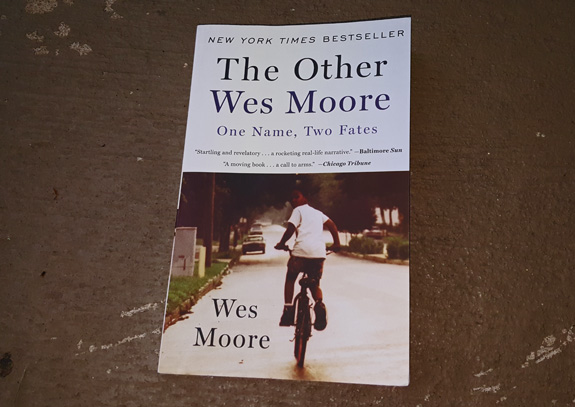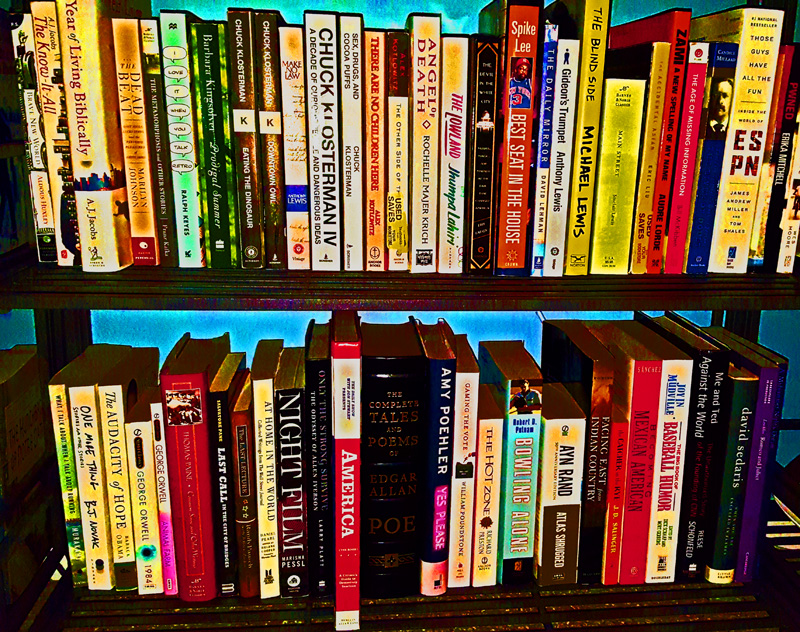Some of us have a much easier time growing up than others. That’s not a startling revelation, but it’s good to be reminded of that from time to time as we go through the world and encounter people whose experience with this world is very different from our own.
In “The Other Wes Moore,” author Wes Moore lays out the divergent paths that he and another guy his age named Wes Moore took. The author’s led to a Rhodes scholarship, time in the military and working with Secretary of State Condoleezza Rice. The other Wes Moore went to jail as a young man when a jewelry store robbery ended in the murder of a security guard.
Author Wes Moore started visiting the other in prison to talk about their backgrounds and where life took them. The book has intermittent bits of these conversations between a narrative of each Wes’s life. While I enjoyed the narrative sections, I would have liked to read more of their interactions, like this one about the basic idea of where things go wrong for people:
“From everything you told me, both of us did some pretty wrong stuff when we were younger,” other Wes said. “And both of us had second chances. But if the situation or the context where you make the decisions don’t change, then second chances don’t mean too much, huh?”
“I sat back, allowing Wes’s words to sink in,” the author said. “Then I responded, ‘I guess it’s hard sometimes to distinguish between second chances and last chances.'”

Moore writes about the outlook you get when what you see around you is not a lot of hope for a different life and the regular reminder, through death, that life can come and go quickly. He says that drives some to “paralyzing apathy” and never thinking far into the future, but for him made him see how precious every day is and that no moment should be wasted.
At one point he gets accepted to Johns Hopkins University despite admittedly having lower SAT scores than the typical Hopkins student. The difference, he writes, is that he had a strong connection in the admissions department, making him think about those who don’t have such “luck” and are stuck without any chance of that kind of access.
“So many opportunities in this country are apportioned in this arbitrary and miserly way, distributed to those who already have the benefit of a privileged legacy.”
I think this is one of the biggest things people overlook. While hard work and a desire to succeed are incredibly important, so much of our life trajectory begins with the possession or lack of a sort of lottery ticket from our circumstances.
Moore says that today when people ask him about his story and what makes the difference between a life like his and the other Wes, it’s hard to know whether genetics, environment or bad luck are the key factors.
“Some of the ones that helped me come to mind, from finding strong mentors to being entrusted with responsibilities that forced me to get serous about my behavior. There is no one thing that leads people to move in one direction or another. I think the best we can do is give our young people a chance to make the best decisions possible by providing them with the information and the tools and the support they need.”
